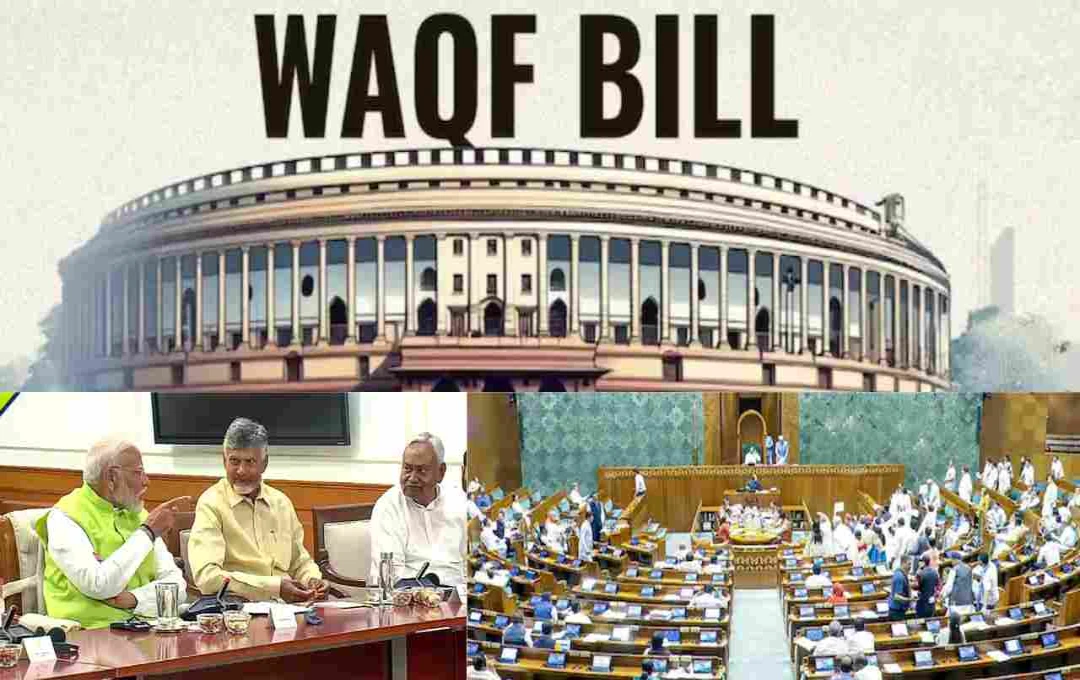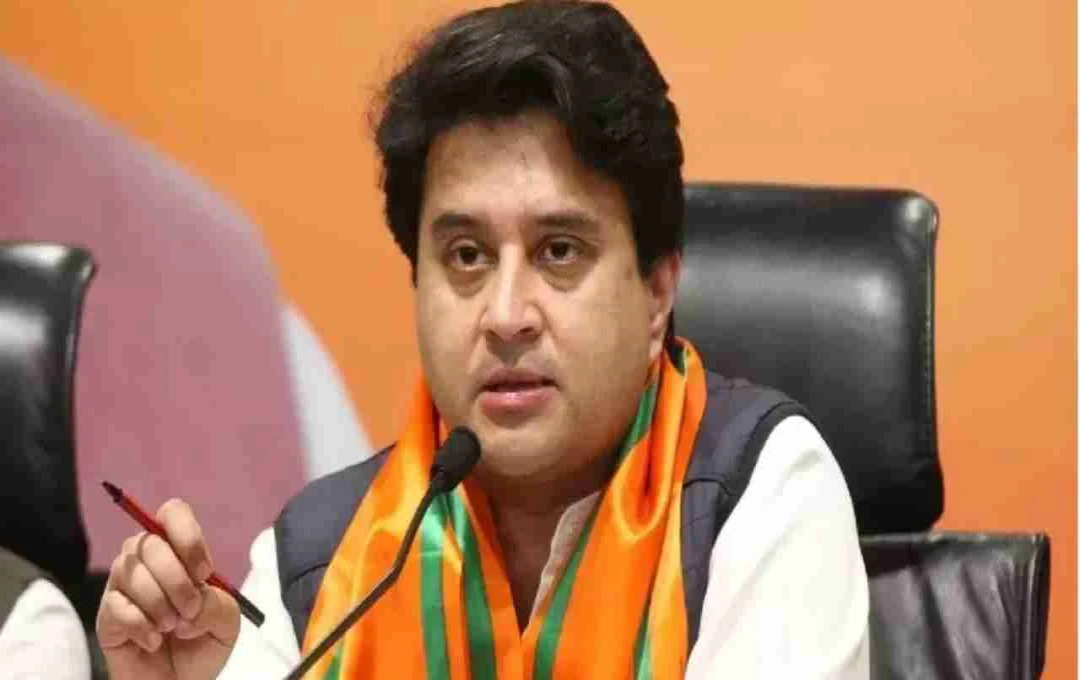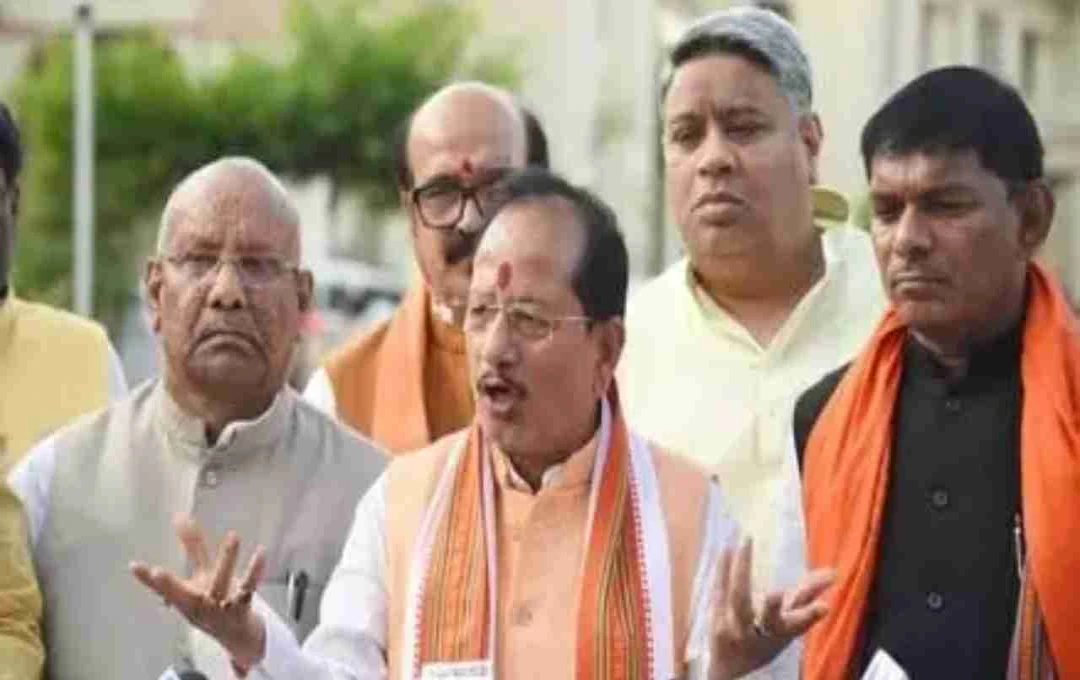The passage of the Wakf Amendment Bill through Parliament signifies more than just a legal change; it represents a clear indication of the NDA coalition's new political direction. This is particularly noteworthy in the context of the Modi government's third term, where the BJP lacks a majority in the Lok Sabha.
New Delhi: The passage of the Wakf Amendment Bill through both houses of Parliament is not only a significant legal development but also indicates the political unity of the NDA coalition and a shift in its internal dynamics. Currently, while the Modi government is in power for a third term, the BJP lacks a single-party majority in both the Lok Sabha and Rajya Sabha. Therefore, the passage of this bill points towards improved coordination among coalition partners and a strengthened alliance.
What is the Bill's significant political message?
The Wakf Amendment Bill, falling under the category of religiously sensitive issues—similar to Article 370, the triple talaq law, and the Uniform Civil Code—being passed in this manner not only boosts the confidence of the government ministries but also demonstrates that the government has established a new power structure within the coalition to advance its ideological agenda.
Three key signals from the Wakf Bill
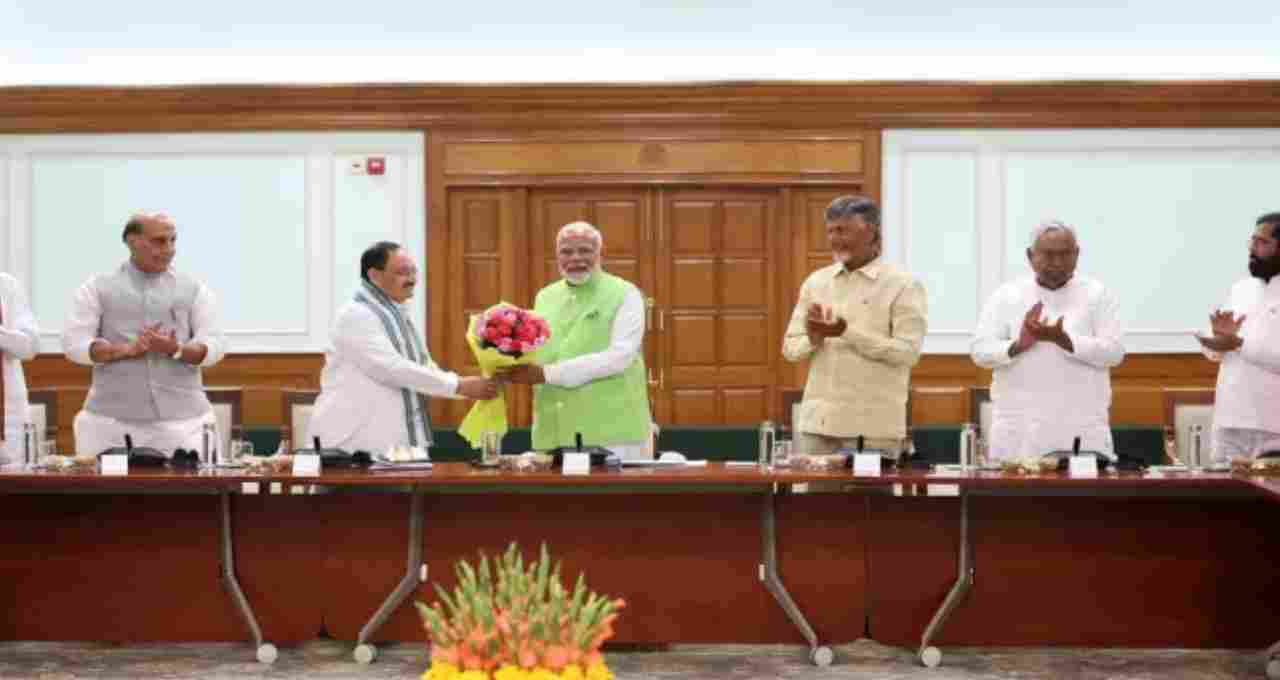
A setback to the opposition's strategy: It is now clear that NDA allies will not distance themselves from the government solely based on ideological differences, weakening the opposition's hope that the government might be destabilized by internal dissent. Paving the way for a Uniform Civil Code: The government is now in a position to advance its long-term ideological agendas at the opportune moment. The Wakf Bill has, in a way, prepared the ground for issues like the Uniform Civil Code.
Increased prospects for economic and administrative reforms: The growing confidence of coalition partners could also make them more supportive in implementing economic and administrative reforms.
NDA allies within the coalition's boundaries
The Modi government has cleverly kept NDA allies within the coalition's framework, limiting their political options. The LJP, which withdrew support from the Vajpayee government in 2002 over the Gujarat riots issue, supported the Wakf Bill this time before the Bihar elections. The TDP, which had previously distanced itself from the BJP over minority sensitivities, has now strengthened its return by offering its support.
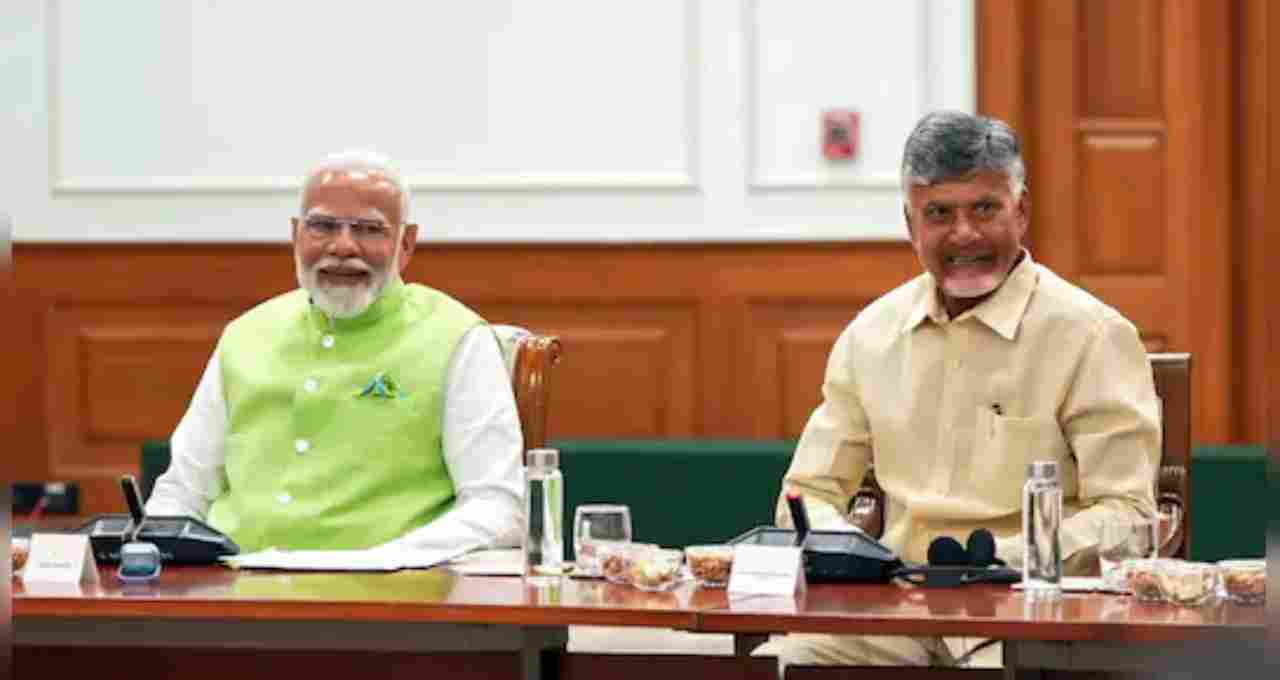
The JD(U), which is cautious about maintaining its hold on Muslim votes in Bihar, also supported the Wakf Bill, indicating that Nitish Kumar is now prioritizing political expediency over ideological rigidity.
Building trust through amendments to the Bill
Before supporting the bill, BJP allies demanded certain amendments, particularly regarding the retrospective effect and the role of state governments in state Wakf boards. The government heeded the concerns of the coalition partners on these issues and satisfied them through amendments, enabling the bill to receive widespread support.
